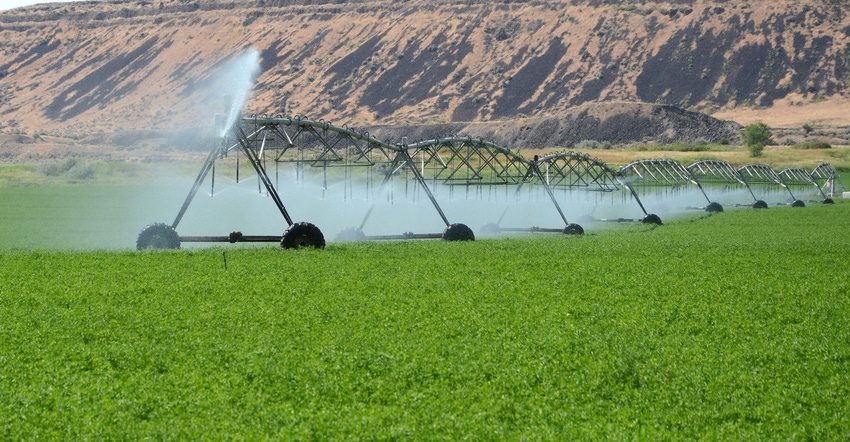March 20, 2020

Western farmers and ranchers are increasingly advocating that they can play a key role in using their lands, water and management practices as tools to engage in market-based programs, including payment for ecosystem services projects. These projects can create opportunities for partnerships with landowners, business, nongovernmental organizations and agencies that can significantly improve the environment, business climate and quality of life within Western watersheds.
There are exciting opportunities and innovations that surround the four environmental markets: wetlands, threatened and endangered species, water quality and carbon. For example, farmers are paid to complete best management practices to generate credit for a specific practice, and the credits are used to meet sustainability or compliance goals.
Through regulated markets, mitigation bankers can couple them with a permittee who needs to comply with environmental laws. It can also provide less expensive ways to comply with the Clean Water Act or Endangered Species Act.
Agriculture has solutions to offer, and producers can be compensated for those solutions.
There is cash waiting to be invested, primarily in land. Other investors are waiting on the sidelines. Mitigation bankers like RiverBank Conservation LLC, Austin, Texas, seek to connect customers who need compliance with regulators who have problems connecting the dots and doing something different. The industry will only continue to grow as creative people find innovative ways to deal with environmental issues.
Key players and experts in this field participated in several panel discussions at the 2020 Family Farm Alliance annual conference held in Reno, Nev., recently. One panel of experts discussed how the role of soils can be expanded to not only produce nutritious food and feed, but also improve water quality, increase carbon sequestration, reduce greenhouse gas emissions, and improve human and animal health.
Carbon market and more
The potential for a related full-service carbon market with monetized outcomes exists, and it is gaining traction. Farm practices that improve carbon sequestration also have immediate benefits beyond climate change mitigation. Proponents say they’re looking to improve the soil (good for crop production) and improve water quality, which are outcomes encouraged by USDA’s conservation programs. Unfortunately, researchers don't yet have precise measurements about the carbon impacts of particular practices, which is an information gap proponents seek to help fill.
A well-designed water quality trading program — another topic of a panel discussion at the Reno conference — is an added market-based approach that can make some ranching or farming operations even more financially and environmentally viable. The Trump administration is dusting off this idea and trying to revive interest in this space.
In a February 6, 2019, Memorandum, the U.S. EPA reiterated its strong support for market-based mechanisms, including water quality trading, to accomplish its mission to protect human health and the environment.
We support EPA’s focus on water quality trading, and we appreciate the critical discussion and reflection that EPA is applying to market-based approaches.
The Family Farm Alliance stands ready to work with EPA on building that platform and engaging the Western farm and rangelands community about market-based approaches.
Keppen is executive director, Family Farm Alliance. Learn more at familyfarmalliance.org.
About the Author(s)
You May Also Like




